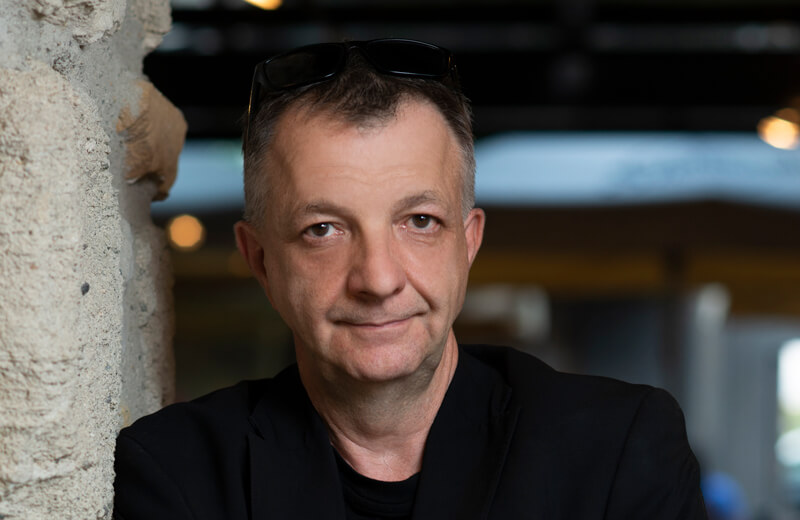World Day for Cultural Diversity for Dialogue and Development on May 21 provides an opportunity to deepen our understanding of the value of diversity. But how do we measure and report on diversity? In our increasingly global world, who sets the parameters for what is diverse enough? And how can we define it?
The traditional concept of diversity has often focused on the idea of creating tolerance between different cultures. However, as ideas about diversity and inclusion have developed, the focus has shifted towards how diversity is able to enrich human learning and experience, so-called ‘unity in diversity’. This powerful phrase has been adopted by numerous political bodies, including the European Union who began using it as an official motto in 2000.
A diverse environment has multiple benefits for personal development. Outside of becoming accepting and more aware of other cultures, it can help smash previously held stereotypes. Diversity and inclusion breed productivity as the ability to learn and grow from each other is exponentially expanded. A multicultural exchange of ideas bolsters richer idea generation, in turn leading to innovation and creativity.
This is especially pertinent in educational settings and companies, arenas all about learning, creating and sharing ideas. In these environments, a profile exposed to different cultures viewpoints, allows for more contribution and out-of-the-box thinking.
At Cultural Infusion (founded by Peter Mousaferiadis in 2002, whose organisational vision is to help create a world that is culturally harmonious), more than five years of research and development has led to the creation of the world-first mapping tool, Diversity Atlas.
The new platform makes it easy for teams and organisations to measure, understand and value its cultural identity while comparing their workforce diversity to the communities and customers they serve. Built to improve organisation inclusion and engagement, Diversity Atlas is an integral part of Cultural Infusion’s ambition to create a culturally harmonious world through intercultural understanding.
Diversity Atlas has begun to map workplaces and organisations, many in partnership with the Diversity Council of Australia.
Early findings across 6000 survey responses reveal some interesting insights into generational and gender differences within cultural diversity.
Generation X and Generation Y are more likely to be secular in their approach to religion.
Younger generations, Generation X, followed by Generation Y, are more likely to speak more than one language.
Women, on average, are also more likely to speak more than one language compared to men
Women are more likely to reveal their cultural heritage than men
The most popular religion identified is none – this result is the same in Diversity Atlas and Australian Census data.
However, organisations are typically far less representative of gender and disability compared to the national Census.
From producing and directing major intercultural productions for the United Nations, the Parliament of World Religions, and the United Religions Initiative, Cultural Infusion’s Founder, Peter Mousaferiadis is an internationally recognised thought leader of culture as a driver of peace and innovation. For over 30 years, Peter has created a lifelong interest and passion to learn from and teach others about culture in many varied forms. The business and foundation’s mission has been to build global harmony through intercultural action, from delivering a wide range of cultural programs for schools, businesses, governments and partners to running major events and programs that help people better understand and experience the value cultural diversity has in all our lives.
National feelings can lead to sinful phenomena such as aggressive nationalism, xenophobia, feelings of national exclusivity and interethnic enmity. In their final realization, these phenomena often lead to the restriction of the rights of the individual and the people, wars and other manifestations of violence.
The European Network Against Nationalism, Racism, Fascism and in Support of Migrants and Refugees (UNITED) is one of the examples from Europe for Intercultural Action as a leading provider of information about international non-profit organizations. Founded 1992, Strasbourg (France), by participants of two European seminars and registered in accordance with Dutch law, it coordinates the networking process of European organizations of various political backgrounds which want to unite their efforts to fight racism and fascism and influence migration and asylum policies. Membership in such an association, in which more than 550 organizations from different directions work together in all European countries, would provide an opportunity for the Bulgarian contribution to the elimination of problems of European importance: racism, nationalism, fascism, discrimination, migration restriction. And to agree in the future to supplement “against communism and any form of totalitarianism”, which is extremely important for the new EU member states, which have suffered for decades under the Bolshevik boot.
“The eyes of the Lord are everywhere and watch the good and the evil ”
(Proverbs 15: 3)
The division of peoples into good and bad, as well as the humiliation of any ethnic or civil nation, is contrary to Orthodox ethics. Even less consistent with Orthodoxy are the teachings that put the nation in the place of God or reduce faith to one aspect of national self-consciousness.
By opposing such sinful phenomena, the Orthodox Church carries out a mission of reconciliation between the nations involved in hostilities and their representatives. Thus, in the course of interethnic conflicts, it does not side with anyone, except in cases of overt aggression or injustice shown by one of the parties.
The Church calls on those in power to resolve any conflict by seeking mutually beneficial solutions. It stands on the side of the victims of aggression, as well as against the illegitimate and morally unjustified external pressure.
While respecting the choice of non-religious people in terms of worldview and their right to influence social processes, the Church cannot accept as positive such an arrangement of the world order in which the human personality darkened by sin is placed at the center of everything. That is why, by not closing the possibility of cooperating with people with non-religious beliefs, the Church strives to affirm Christian values in the process of making extremely important social decisions both nationally and internationally.
It seeks to recognize the legitimacy of the religious worldview as the basis of socially significant actions (including state) and as a significant factor influencing the construction (change) of international law and the activities of international organizations, as stated categorically in the Social Concept of the Russian Orthodox Church. Church, for example.






